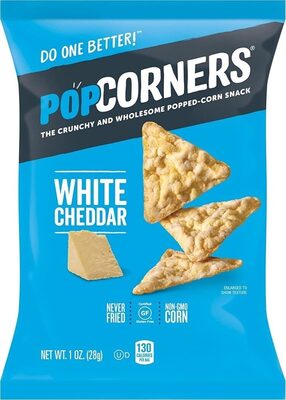
Barcode: 893594002051
White cheddar
DOUBTFUL
📝 Reason: The product contains ingredients like whey and cheese with enzymes that lack Halal certification, making their status Doubtful. According to Islamic dietary laws, any ingredient of doubtful origin without clear Halal certification should be avoided. Quran 5:3 prohibits consuming doubtful substances.
🏷️ Category: Snacks, Salty Snacks, Appetizers, Chips And Fries, Crisps, Popcorn, Corn Chips
📄 Certificates: No Gluten
Ingredients:
Details
Understanding the Halal Status of White Cheddar
When it comes to maintaining a Halal diet, one of the most important aspects is ensuring that the food products we consume adhere to the guidelines set forth in Islamic dietary laws. In this article, we explore the Halal status of White Cheddar, a popular snack choice, and delve into its ingredients to understand any potential concerns.
Overview of White Cheddar
White Cheddar is not just a favorite for its flavor; it’s also known for its versatility across various recipes and as a snack. However, when considering its compatibility with Halal principles, we must look closely at the ingredients used in its production.
Ingredients Breakdown
The ingredients of White Cheddar include:
- Yellow corn
- Sunflower oil
- Whey
- Maltodextrin
- Cheddar and blue cheese (cultured milk, salt, enzymes)
- Canola oil
- Salt
- Citric acid
- Lactic acid
Analyzing Each Component
1. Yellow Corn
Yellow corn is a plant-based ingredient generally considered Halal, as it does not come from animal sources and poses no issues regarding Halal compliance.
2. Sunflower Oil
This is another plant-based oil that is generally regarded as Halal. It’s widely used in various food products and carries no Halal ambiguity.
3. Whey
Whey is a dairy product derived from milk. However, in this case, it lacks Halal certification, making its status Doubtful. For the purpose of avoiding any uncertain ingredients, it’s advisable for Halal consumers to exercise caution here.
4. Maltodextrin
This ingredient is generally regarded as Halal unless derived from Haram sources, which is not indicated in this case. Thus, maltodextrin is considered acceptable in moderation.
5. Cheddar and Blue Cheese (Cultured Milk, Salt, Enzymes)
The cheese used in this product poses another concern. While cheddar and blue cheese are beloved for their flavors, the source of cheese enzymes is not specified, hence making its Halal status also Doubtful without certification.
6. Canola Oil
Much like sunflower oil, canola oil is plant-based and generally considered Halal, making it safe for consumption.
7. Salt
Salt is a mineral and is universally acknowledged as Halal.
8. Citric Acid
This common food additive is usually considered Halal, unless derived from animal sources, which isn’t indicated here.
9. Lactic Acid
Similar to citric acid, lactic acid is widely regarded as Halal as long as its source is compliant, which remains unclear in this case.
Conclusion on Halal Status
White Cheddar has several Halal-compliant ingredients such as yellow corn, sunflower oil, canola oil, and salt. However, the presence of whey and cheese enzymes lacking Halal certification brings the overall Halal status into doubt. According to Islamic dietary guidelines, consuming products with doubtful ingredients is frowned upon; as stated in Quran 5:3, it is advised to avoid foods that hold uncertain origin or status.
In summary, if you’re considering White Cheddar as part of your snacks, it’s crucial to weigh these factors. While some components are Halal, the overall status is best described as DOUBTFUL. For strict Halal practitioners, it may be wiser to seek alternatives that carry a clear and trusted Halal certification to ensure full compliance with dietary restrictions.
Brand and Certification Context
Currently, no specific brand is associated with the White Cheddar product, but it fits into several categories, including Snacks, Salty Snacks, and Appetizers. As a consumer, always look for credible certifications to guide your choices in snacks. All-in-all, understanding each ingredient’s Halal status can empower better dietary decisions aligned with Islamic principles.
